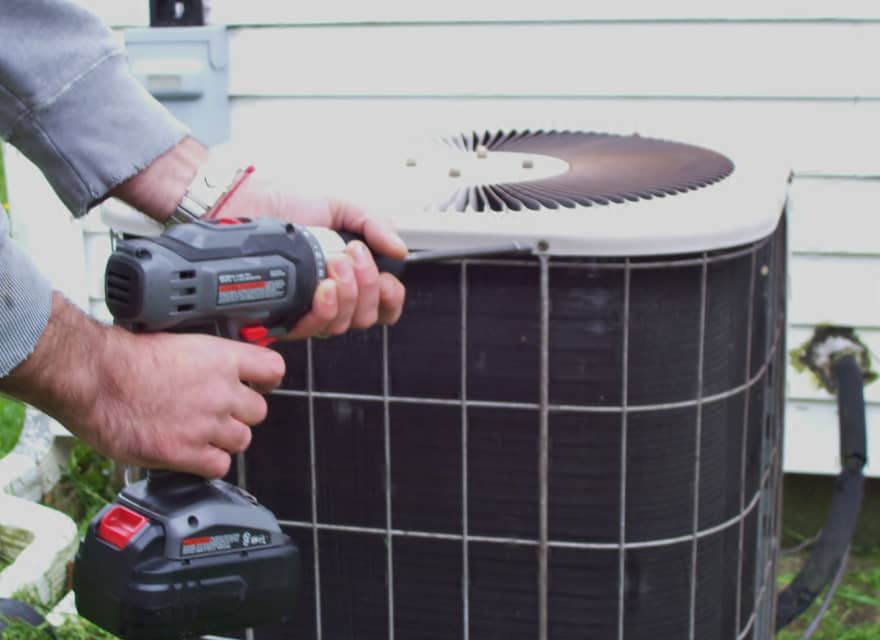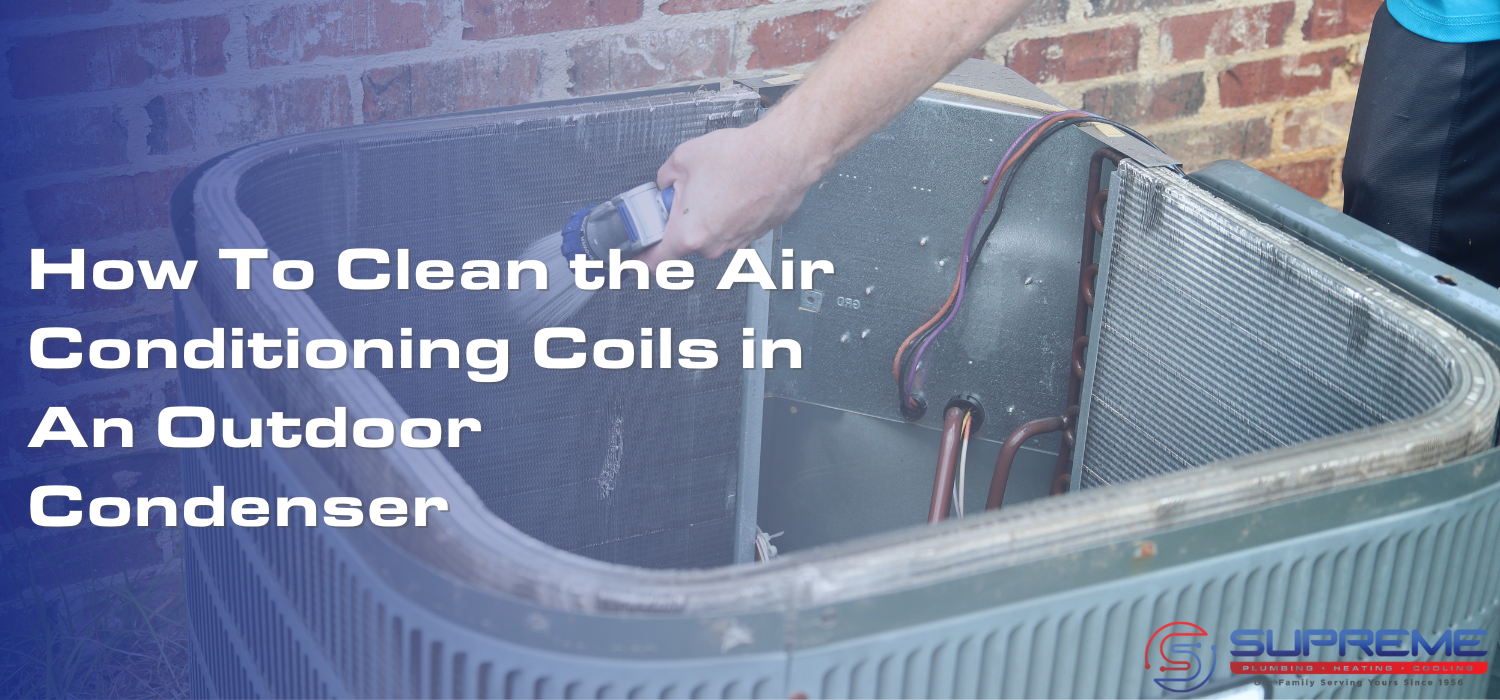What Can I Use To Clean My Air Conditioner Coils
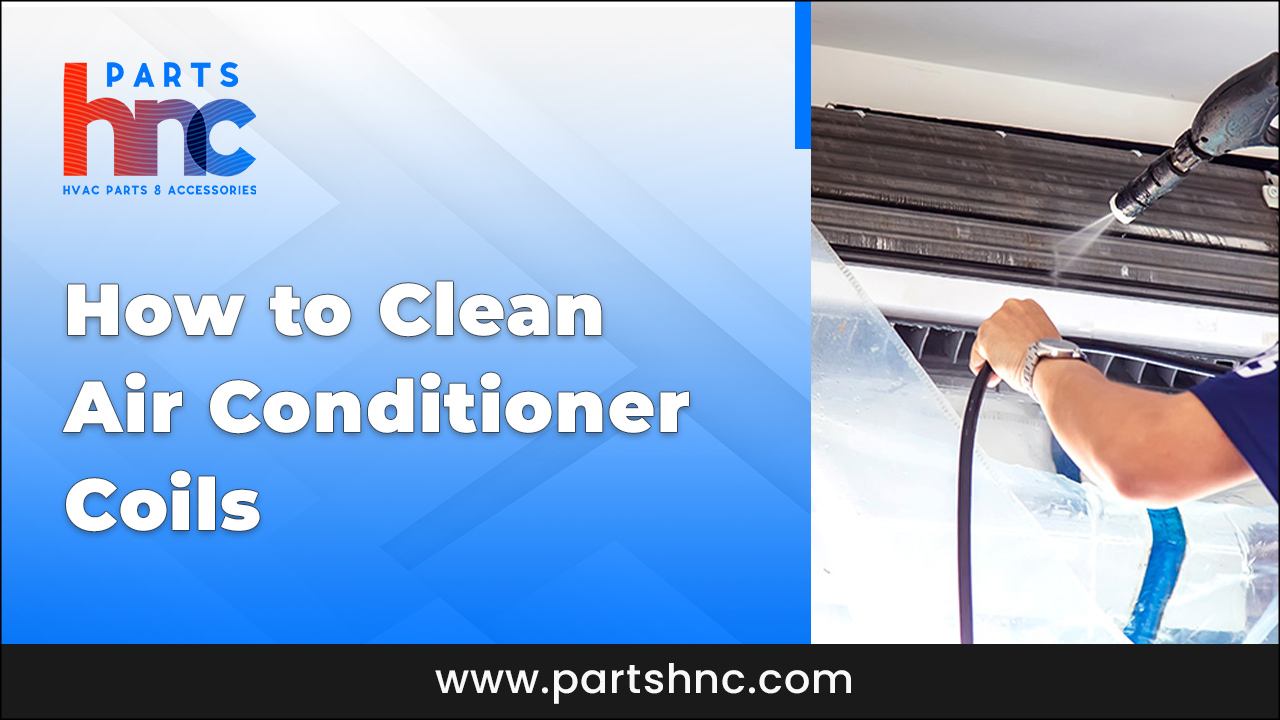
Maintaining clean air conditioner coils is crucial for optimal performance and energy efficiency. Dirty coils force your AC unit to work harder, leading to higher energy bills and potential breakdowns. This guide will walk you through what you can use to clean your AC coils safely and effectively.
Understanding AC Coils and Why They Need Cleaning
Your air conditioner has two sets of coils: the evaporator coil (inside) and the condenser coil (outside). Think of refrigerant as the 'blood' of your AC system, carrying heat from inside to outside. The evaporator coil absorbs heat from your indoor air, while the condenser coil releases that heat outside.
Over time, dust, dirt, pollen, leaves, and other debris accumulate on these coils. This buildup acts as an insulator, preventing the coils from efficiently transferring heat. When coils are dirty, the air conditioner struggles to cool your home, leading to:
- Reduced cooling capacity: Your AC won't cool as effectively.
- Increased energy consumption: The unit has to run longer to achieve the desired temperature, increasing your electricity bill.
- Frozen evaporator coil: Excessive dirt can restrict airflow and cause the evaporator coil to freeze.
- Compressor failure: Overworking the compressor can lead to premature failure, which is a costly repair.
- Poor indoor air quality: Dirty coils can harbor mold and bacteria, affecting the air you breathe.
Regular cleaning of your AC coils can prevent these problems and extend the lifespan of your unit.
Safety First: Before You Begin
Before you even think about cleaning, safety is paramount:
- Turn off the power: Disconnect the power to the AC unit at the breaker box. This prevents electrical shock. Double-check that the power is off.
- Wear protective gear: Wear gloves and eye protection to protect yourself from chemicals and debris. A dust mask is also recommended.
- Read the manufacturer's instructions: Consult your AC unit's manual for specific cleaning recommendations. Some manufacturers may advise against using certain cleaning solutions.
What You Can Use to Clean AC Coils
There are several options available for cleaning AC coils, each with its own advantages and disadvantages:
1. Fin Comb
A fin comb is a tool specifically designed to straighten bent fins on the coils. Fins are the thin metal plates that surround the coils, and they are easily bent. Straightening bent fins is important because bent fins restrict airflow and reduce the efficiency of the AC unit. A fin comb doesn't clean the coils directly, but it's an essential tool for restoring proper airflow after cleaning or if the fins are damaged.
2. Vacuum Cleaner with Brush Attachment
A vacuum cleaner with a brush attachment is a good option for removing loose dirt and debris from the coils. This method is best for light cleaning and can be used on both the evaporator and condenser coils.
How to use it:
- Gently vacuum the coils, moving the brush attachment up and down.
- Avoid applying too much pressure, as this can damage the fins.
- Vacuum both sides of the coil if possible.
This method is best suited for removing surface dust and debris and is often used as a preliminary step before using other cleaning methods.
3. Garden Hose with a Gentle Spray Nozzle
A garden hose can be used to rinse the condenser coils (the outside unit) with water. This method is effective for removing dirt and debris that is not too heavily caked on.
How to use it:
- Use a gentle spray nozzle to avoid bending the fins.
- Spray the coils from the inside out to flush out the dirt.
- Avoid spraying the electrical components.
- Allow the coils to dry completely before turning the power back on.
Important Note: This method should only be used on the condenser coils, as the evaporator coils are located inside your home and spraying them with water can cause water damage.
4. Commercial Coil Cleaners
Commercial coil cleaners are specially formulated to remove stubborn dirt and grime from AC coils. They come in two main types:
- No-rinse coil cleaners: These cleaners are designed to dissolve dirt and debris without requiring rinsing. They are convenient and easy to use.
- Rinse coil cleaners: These cleaners require rinsing with water after application. They are typically more effective at removing heavy buildup.
How to use commercial coil cleaners:
- Read the product label carefully and follow the manufacturer's instructions.
- Apply the cleaner to the coils, ensuring that all surfaces are covered.
- Allow the cleaner to sit for the recommended amount of time.
- If using a rinse coil cleaner, rinse the coils thoroughly with water.
- Allow the coils to dry completely before turning the power back on.
Important Considerations When Choosing a Commercial Coil Cleaner:
- Foaming vs. Non-Foaming: Foaming cleaners expand to reach tight spaces, offering better coverage. Non-foaming cleaners are easier to rinse (if required).
- Acidic vs. Alkaline: Acidic cleaners are effective for mineral deposits, while alkaline cleaners work well on grease and grime. Choose based on the type of dirt you're dealing with.
- Biodegradable Options: Consider environmentally friendly options that are less harmful to the environment.
5. Homemade Coil Cleaning Solution (DIY Option)
If you prefer a more natural approach, you can create a homemade coil cleaning solution using common household ingredients.
Recipe:
- Mix equal parts of white vinegar and water in a spray bottle.
How to use it:
- Spray the solution onto the coils, ensuring that all surfaces are covered.
- Allow the solution to sit for 15-20 minutes.
- Rinse the coils thoroughly with water.
- Allow the coils to dry completely before turning the power back on.
Important Notes:
- This solution is best for light cleaning and may not be effective for heavy buildup.
- Avoid using harsh chemicals like bleach or ammonia, as these can damage the coils.
Choosing the Right Cleaning Method
The best cleaning method for your AC coils depends on the severity of the dirt and debris buildup:
- Light cleaning (dust, pollen): Vacuum cleaner with brush attachment, garden hose (condenser coils only), or homemade cleaning solution.
- Moderate cleaning (dirt, grime): Commercial no-rinse coil cleaner or rinse coil cleaner (followed by rinsing).
- Heavy cleaning (stubborn buildup): Commercial rinse coil cleaner (followed by thorough rinsing).
Always start with the least aggressive method and work your way up if necessary.
Cleaning the Evaporator Coil vs. Condenser Coil
The evaporator coil is located inside your home, typically within the air handler unit. Accessing it can be more challenging and may require removing panels. The evaporator coil tends to accumulate dust and mold due to the humid environment.
The condenser coil is located outside in the condenser unit. It's exposed to the elements and typically accumulates dirt, leaves, and other debris. Cleaning the condenser coil is generally easier than cleaning the evaporator coil.
Professional AC Coil Cleaning
If you're uncomfortable cleaning your AC coils yourself, or if the coils are heavily soiled, you can hire a professional HVAC technician to do the job. Professional cleaning offers several benefits:
- Expertise: Technicians have the knowledge and experience to clean the coils safely and effectively.
- Specialized equipment: They have access to specialized equipment, such as power washers and industrial-strength coil cleaners.
- Thorough cleaning: Professionals can clean the coils more thoroughly than you can on your own.
- Inspection: They can also inspect your AC unit for other potential problems.
How Often Should You Clean Your AC Coils?
The frequency of AC coil cleaning depends on several factors, including:
- Your location: If you live in a dusty or polluted area, you may need to clean your coils more often.
- Pet ownership: Pets can shed fur and dander, which can accumulate on the coils.
- Air filter maintenance: Regularly replacing your air filter can help prevent dirt and debris from accumulating on the coils.
As a general guideline, you should clean your AC coils at least once a year. However, if you notice any of the following signs, you may need to clean them more often:
- Reduced cooling capacity
- Increased energy bills
- Frozen evaporator coil
- Unusual noises from the AC unit
Final Thoughts
Cleaning your AC coils is an important part of maintaining your air conditioning system. By following the steps outlined in this guide, you can keep your coils clean and ensure that your AC unit is running efficiently. Regular cleaning can save you money on energy bills, extend the lifespan of your unit, and improve your indoor air quality. Remember safety first and when in doubt, call a professional!

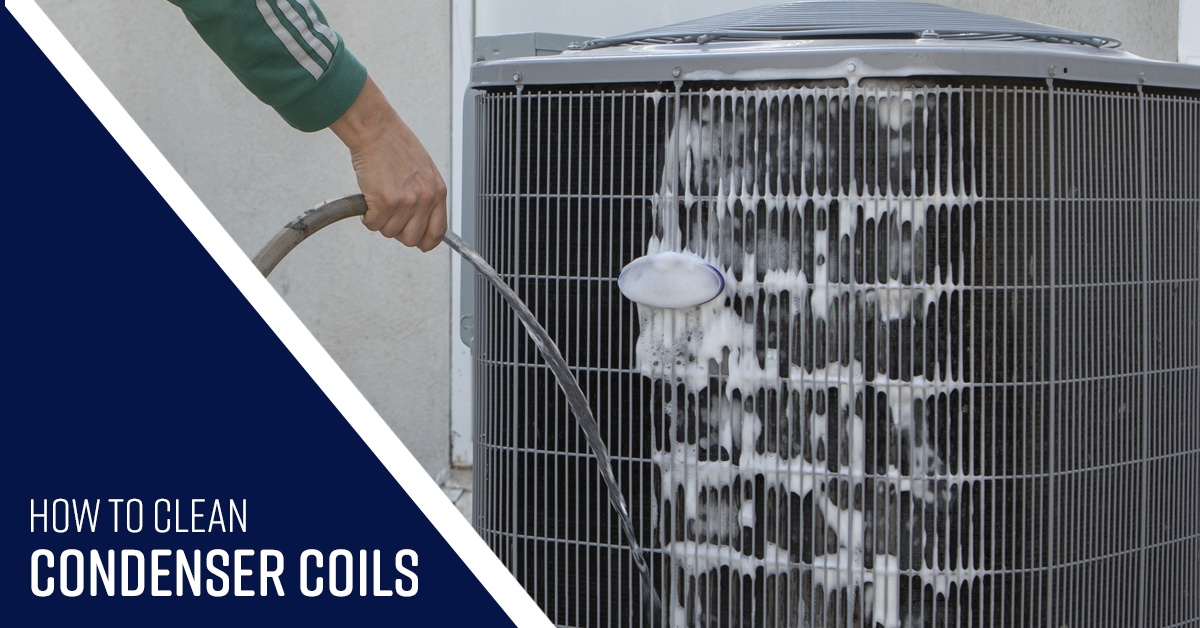
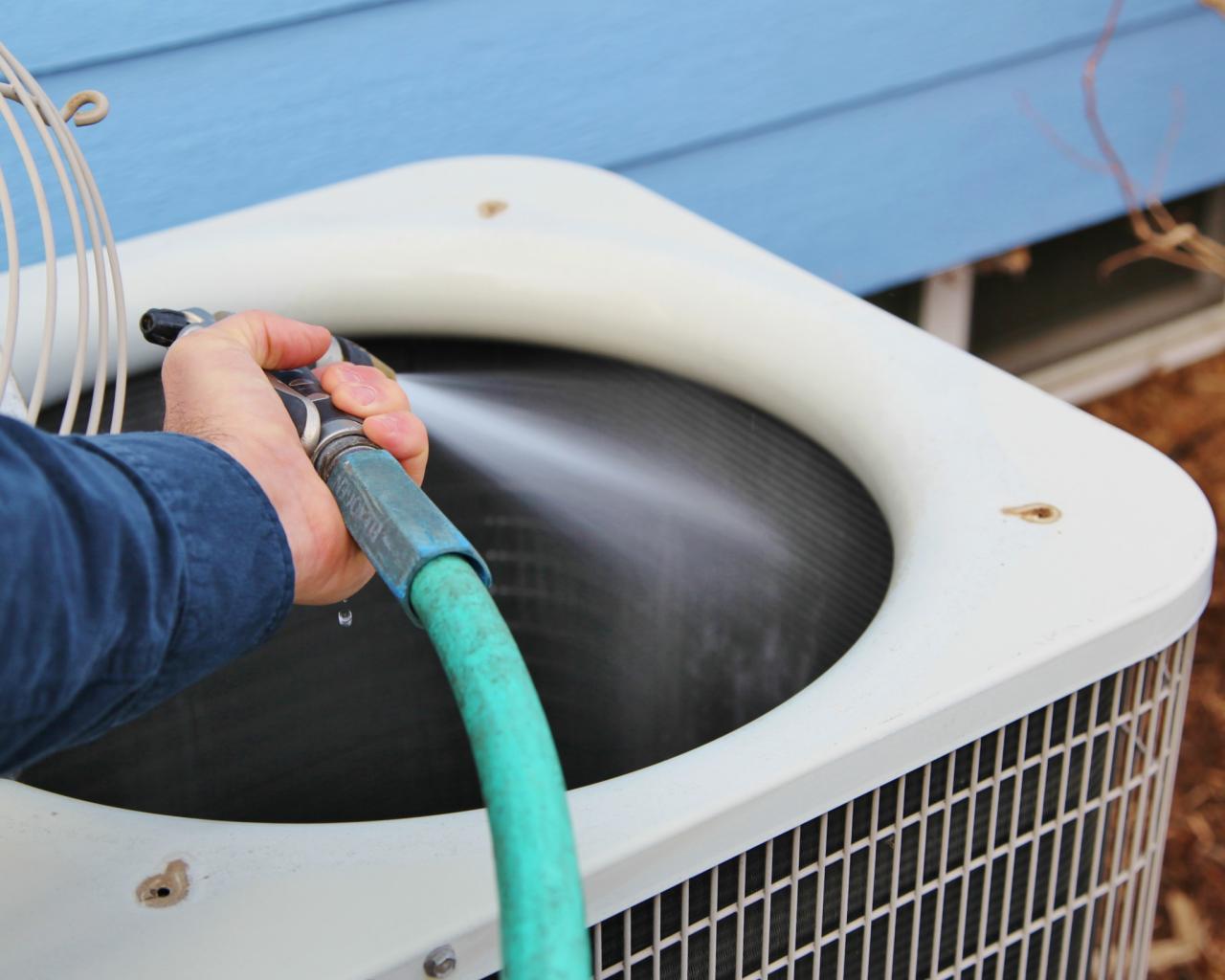

:max_bytes(150000):strip_icc()/how-to-clean-air-conditioner-coils-5225557-step-12-2ba92c6572654da1997facb50c456218.jpg)

